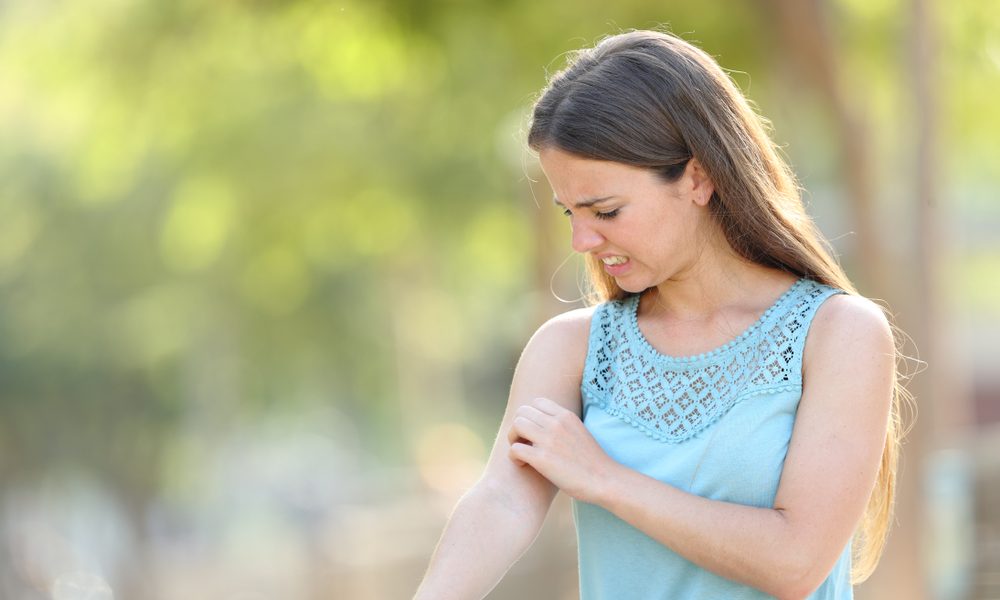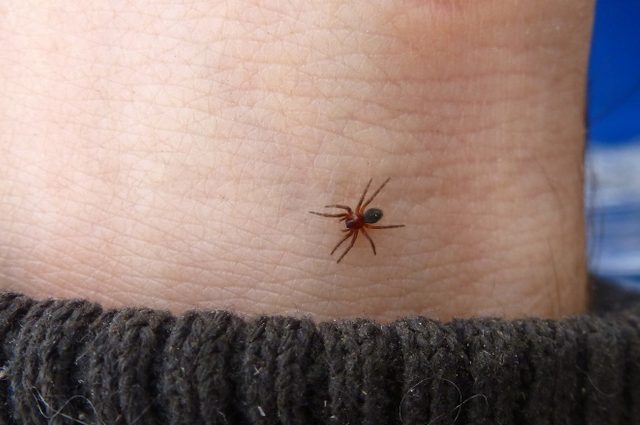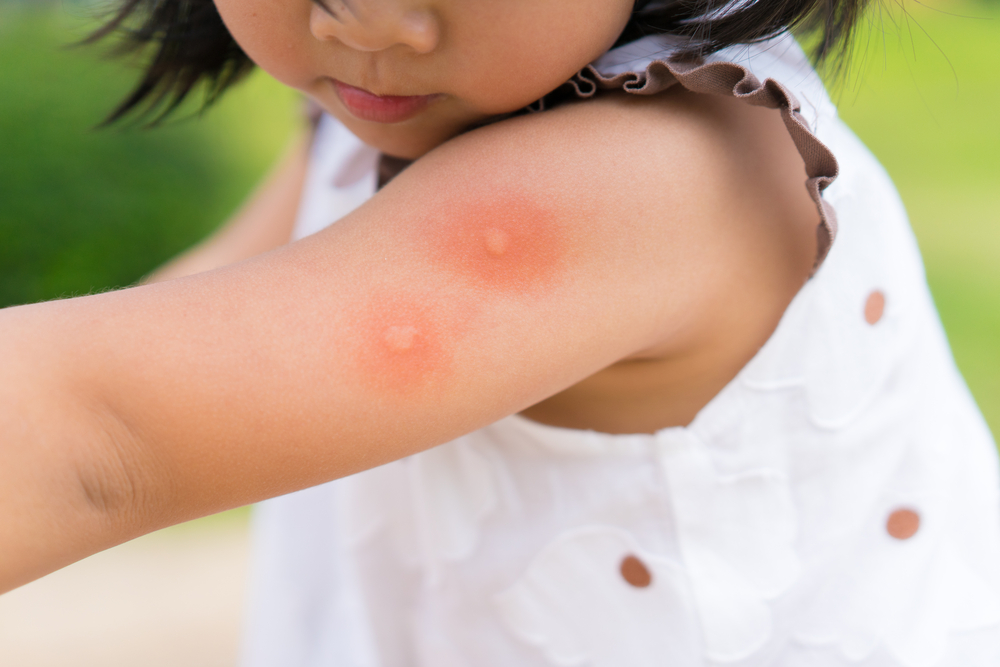
Watch Out for These Bug Bites You might Get This Summer!

There’s no doubt that Summer is the most anticipated season of the year. It’s the perfect time to go out, explore outdoor activities, and hit the beach while some even go for a barbecue party. It’s also the perfect time to travel and have fun with your family and friends.
Unfortunately, this season is also the perfect time for bugs and insects to emerge from their lair and also explore the outdoors. Oftentimes, the summer also signifies their mating season. So you need to be careful in venturing outside since you might get a bug bite or two from these annoying critters! Watch out for these Summer bug bites and find out what you can do to remedy their itchy bites.
Spider Bites

Mironmax Studio/Shutterstock
Only the bites of a black widow or a brown recluse spider can cause serious problems like severe pain, decaying ulcers from a recluse bite, or cramping from a widow bite. If you’ve been diagnosed, seek medical attention right away.
According to the US Health Department, there are thousands of spiders crawling around the country, but most spider bites are non-venomous. You often notice red bumps that itch and hurt at the same time if you got bitten by a spider.
The good news is that this bite can be treated at home. You need to wash the bitten area with water and soap before applying an antibiotic ointment. Then the physicians will advise you to rest while applying a cold compress to reduce the swelling and pain. If you’ve been bitten in your arm or leg, the doctors advise you to elevate the affected area. You may also opt to buy OTC antihistamines and pain relievers if needed.
Fly Bites
Most flies in the United States don’t transmit any disease. However, their bites often cause severe problems. For example, the horse and deer flies possess a scissor-like mouth that cut and tear through your flesh when bitten. Their saliva also triggers some allergic reactions to their victims.
If you’re allergic to their bite, it is recommended to get your bite treated by a doctor as soon as possible. Meanwhile, the Black flies also have vicious bites that can really hurt you. Sand flies can also transmit a skin disease called leishmaniasis in rare cases which cause your skin to scar. In most cases, though, flies are just a nuisance and their bites can be treated with OTC medicines.
Mosquito Bites

MIA Studio/Shutterstock
Rosemarie Kelly, Ph.D., MPH of Department of Public Health in Atlanta, Georgia, stated that mosquitos are the prime examples of insects that spread deadly illnesses since they feed on blood.
Mosquitos are known to be a carrier of deadly diseases like Dengue, Malaria, and the well-known Zika virus. Most of the time, you’ll experience itchiness on the skin and a red bump on the bitten area. If you start having allergic reactions to mosquito bites like blisters, difficulty breathing, fever, vomiting, etc., the doctors advice you to seek medical help immediately.
Tick Bites
Ticks are mainly responsible for spreading Lyme Disease, Rocky Mountain spotted fever, West Nile, and tularemia to humans depending on your geographical location. They all have common symptoms like rashes and classic flu within 3 weeks during the tick season. If you find a tick attaches to you or your mammal, it’s recommended to see a doctor immediately. While antibiotics can treat most tick bites, you need to be diagnosed correctly first.
Flea Bites
You may have known fleas as the bane of existence for your beloved cats and dogs, but did you know you can get them, too? You’ll notice three consecutive bumps on your feet or ankles if you got bitten. You’ll also notice swelling filled with pus on the infected area.
The physicians advise anyone not to scratch these flea bites. Fleas often defecate when they bite their victims, so scratching can pull the bacteria into your skin which causes an infection. You can take topical ointments or oral antihistamines to treat your flea bites. Applying lotion also helps to reduce itching and any allergic reactions you might have. The doctors also recommend you not to take hot baths or showers since it worsens the itching.
More in Health & Well-being
-
`
Here’s Everything You Need to Know About Open Relationships
An open relationship is a consensual arrangement where partners agree to engage in romantic or sexual relationships with other people. Unlike...
June 6, 2024 -
`
Explore the Multifaceted Goals of Meditation
What is the goal of meditation? If you have ever found yourself asking this question, you are not alone. Meditation has...
May 31, 2024 -
`
When is National I Love You Day Celebrated? Mark Your Calendar
Life can get hectic, and sometimes amidst the daily grind, we forget to express our love and appreciation for the phenomenal...
May 23, 2024 -
`
When’s the Best Time of Day to Fish?
For any angler, a successful fishing trip hinges on several factors. But one of the most crucial elements is timing. Knowing...
May 14, 2024 -
`
What Mental Illness Does Britney Spears Have? Discovering the Answer
Britney Spears, a name that resonates with millions around the globe, goes far beyond the glitz and glamour of her stardom....
May 7, 2024 -
`
Here Are Some Easy Ways To Say No To Unrealistic Expectations In Your Relationship
If you are in a relationship, you should constantly work on improving it. Some early lovebirds fall in love too quickly...
May 3, 2024 -
`
Therapy? Medication? What Are the Treatments for PTSD
Post-Traumatic Stress Disorder (PTSD) is a common after-effect of traumatic events. It can be a debilitating condition, but the good news...
April 25, 2024 -
`
Courting vs Dating – Which Relationship Path is Right for You?
In today’s fast-paced world, the terms ‘courting’ and ‘dating’ often swirl around in conversations about relationships. While some people may use...
April 23, 2024 -
`
Essential Mexico Travel Tips for a Seamless Adventure
Mexico, a land of vibrant culture, breathtaking landscapes, and mouthwatering cuisine, beckons travelers from across the globe. But before you embark...
April 16, 2024















You must be logged in to post a comment Login